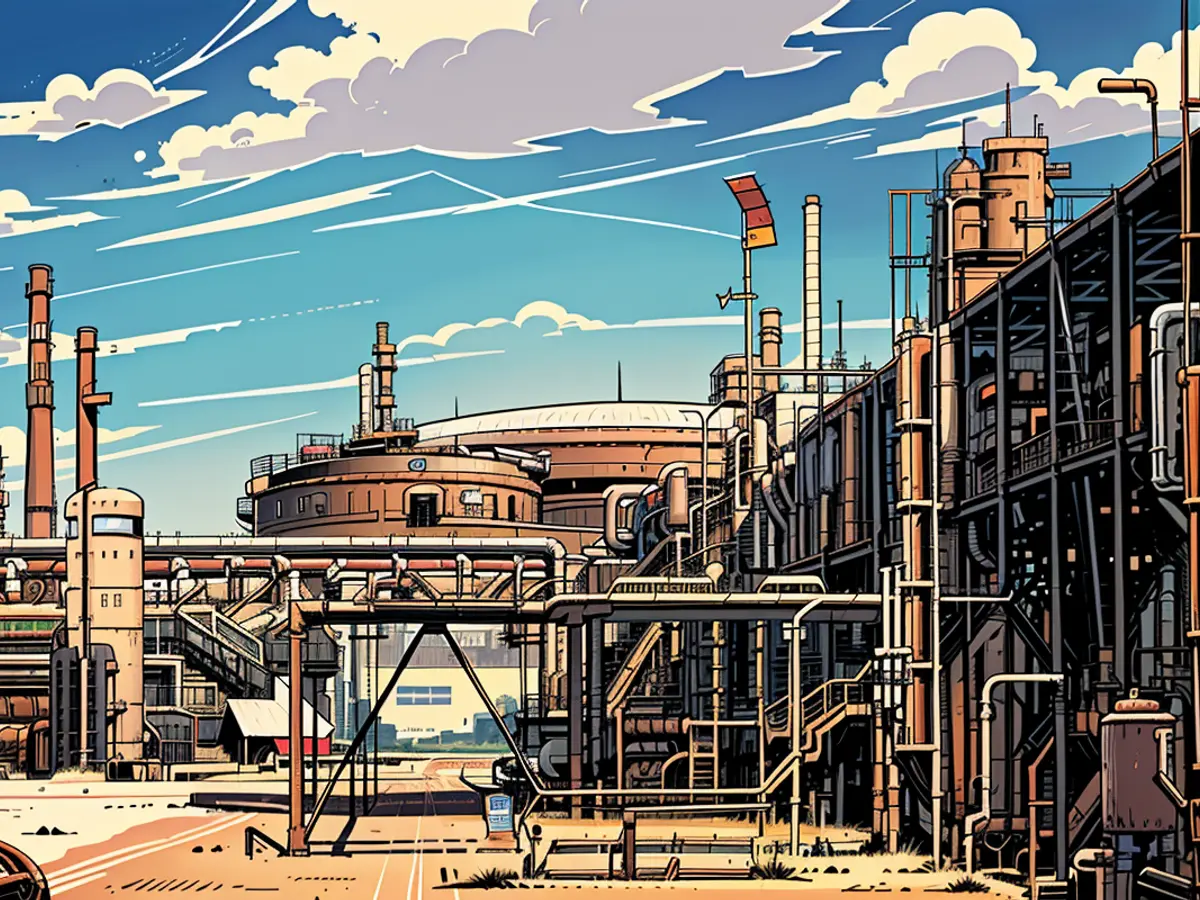In the recent past, just before concluding the monitoring of two German branches of the Russian state-owned firm Rosneft, dialogues between the German administration and Qatar have surfaced. As reported by "Business Insider," state secretary in the Chancellery, Joerg Kukies, has connected with the head of the Qatari sovereign fund, Mansur al-Mahmud, on four different occasions.
Official sources confirmed these discussions with dpa, yet the details of the communications remained undisclosed. Rumors suggest that conversations centering around the acquisition of Rosneft shares from Qatar have begun. These claims were also corroborated by dpa's sources.
The central focus of these negotiations is the prominently German-owned refinery PCK in Schwedt, Brandenburg, primarily managed by the German subsidiaries of Rosneft. Since September 2022, these entities have been under the watch of the federal government due to the German government's decision to put a halt to importing Russian oil in light of the Ukraine conflict. By early 2023, PCK had transitioned to alternative supply sources.
The uncertain future of the Russian shares is a topic of concern as Rosneft announced its intention to sell these shares in the spring. Considering the trustee arrangement, which has been extended for six months at a time, is currently valid until the 10th of September and may be prolonged further, the fate of these shares remains unclear.
Left Party's Christian Goerke voiced his disapproval, calling the potential sale to Qatar "unsavory." Qatar currently holds 20% of the Rosneft conglomerate, and if the German subsidiaries are sold, "Russia would still maintain an indirect influence," according to Goerke. Instead, Goerke suggested that the German government purchase the shares themselves, arguing that it's unacceptable to sell such a critical structural component like a commodity.
The PCK refinery in Schwedt, currently managed by Rosneft's German subsidiaries under trustee administration, is responsible for the operation of the refinery. Although Rosneft has plans to sell its shares, the future of these shares remains undecided, as the trustee arrangement may be extended again.
Additional Insights:
- Negotiations Delayed:
- The sale of Rosneft's German units, including Rosneft Deutschland GmbH and RN Refining & Marketing GmbH, has been delayed. These entities have been under the control of the German government following Russia's invasion of Ukraine[1][4].
- Qatari Interest:
- Qatar, through its sovereign wealth fund Qatar Investment Authority (QIA), is the only remaining bidder for the companies. Qatar is interested in acquiring Rosneft's majority stake in the PCK Schwedt refinery, which is a crucial fuel supply source for Berlin and surrounding regions[4].
- Political and Economic Considerations:
- The negotiations are complex, as Qatar has shown apprehensions about Germany's economic environment and post-election investment landscape. This has delayed finalizing the transaction[1].
- The German government views Qatar as a potential partner capable of securing stable fuel supplies while avoiding a foreign takeover of critical infrastructure[4].
- Impact on PCK Refinery:
- The PCK refinery in Schwedt is a significant asset, with an operational capacity of nearly 80% (as of 2023). The refinery processes a variety of crude oil sources, including those from Kazakhstan, which has been an essential supplier due to the refinery's isolation from Russian crude supplies[3][4].
- Future Outlook:
- If successful, this acquisition could reshape the German energy landscape by diversifying supply sources and reducing reliance on Russian energy. This could potentially be a necessary compromise to maintain supply stability while shifting the industry to global tensions[4].
- Government Support:
- The German government has expressed support for the transformation of the PCK refinery, emphasizing the importance of securing stable fuel supplies and ensuring the refinery's long-term viability. They are working closely with stakeholders to tackle ongoing uncertainties, including unresolved ownership issues[3].








